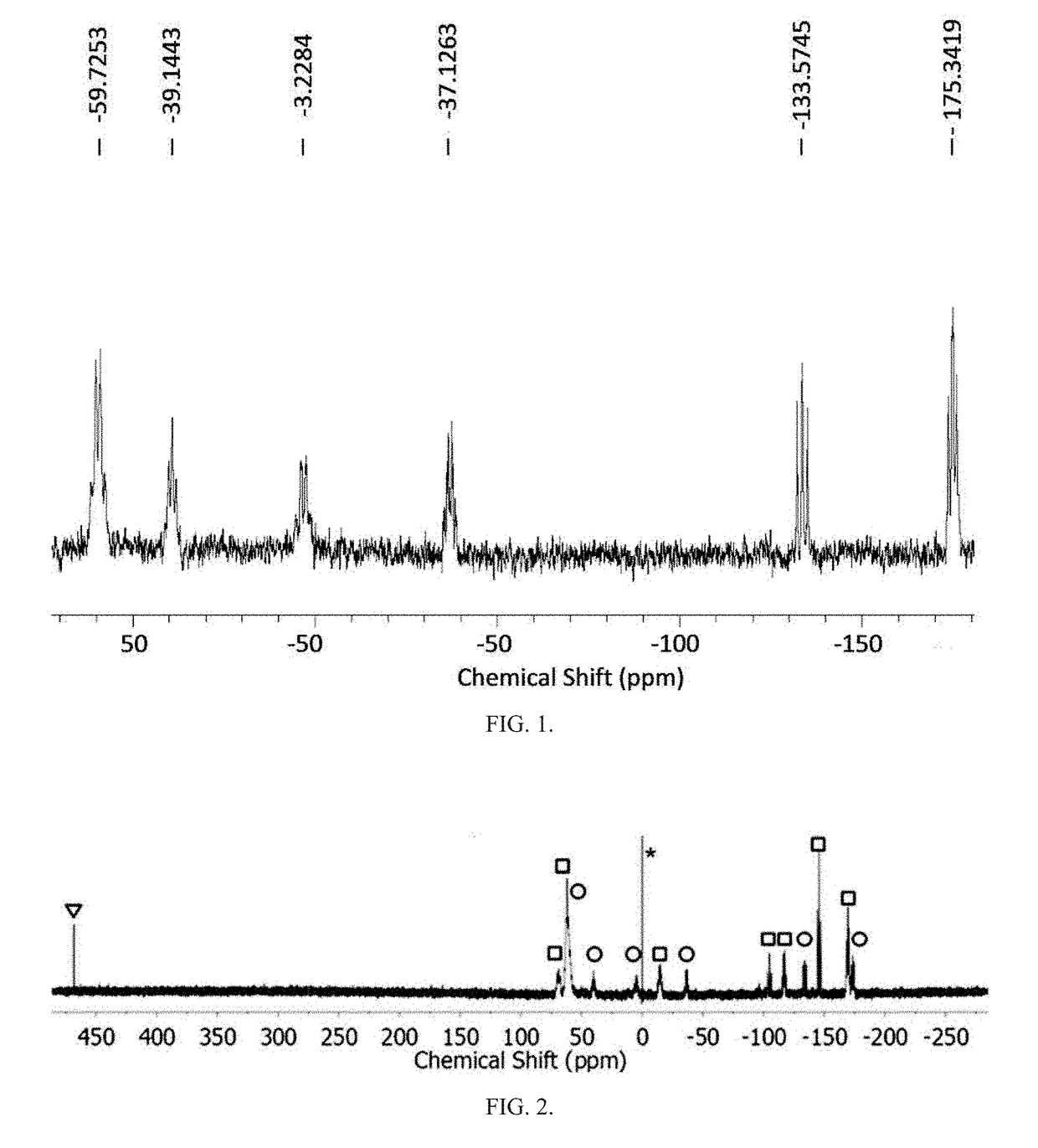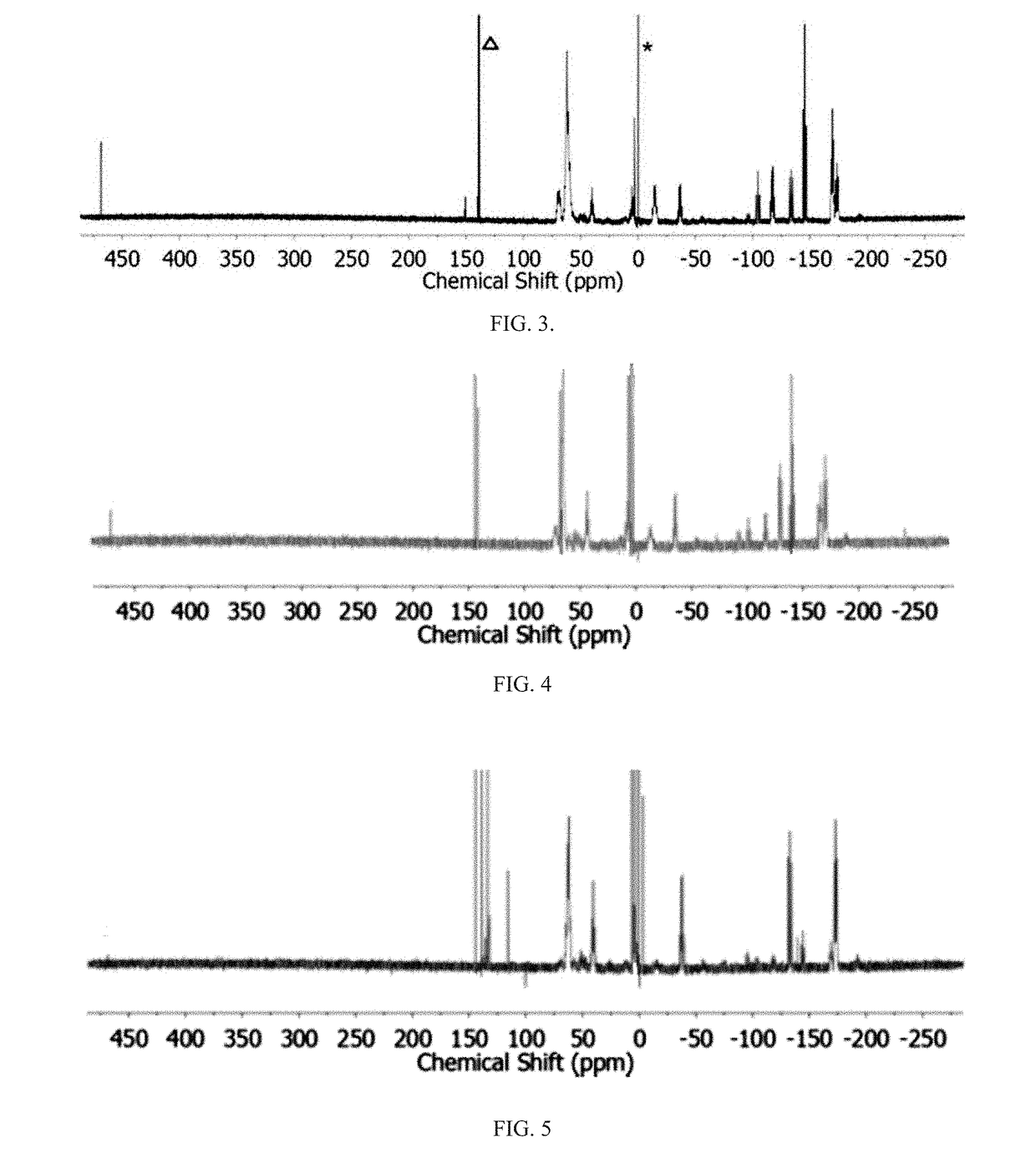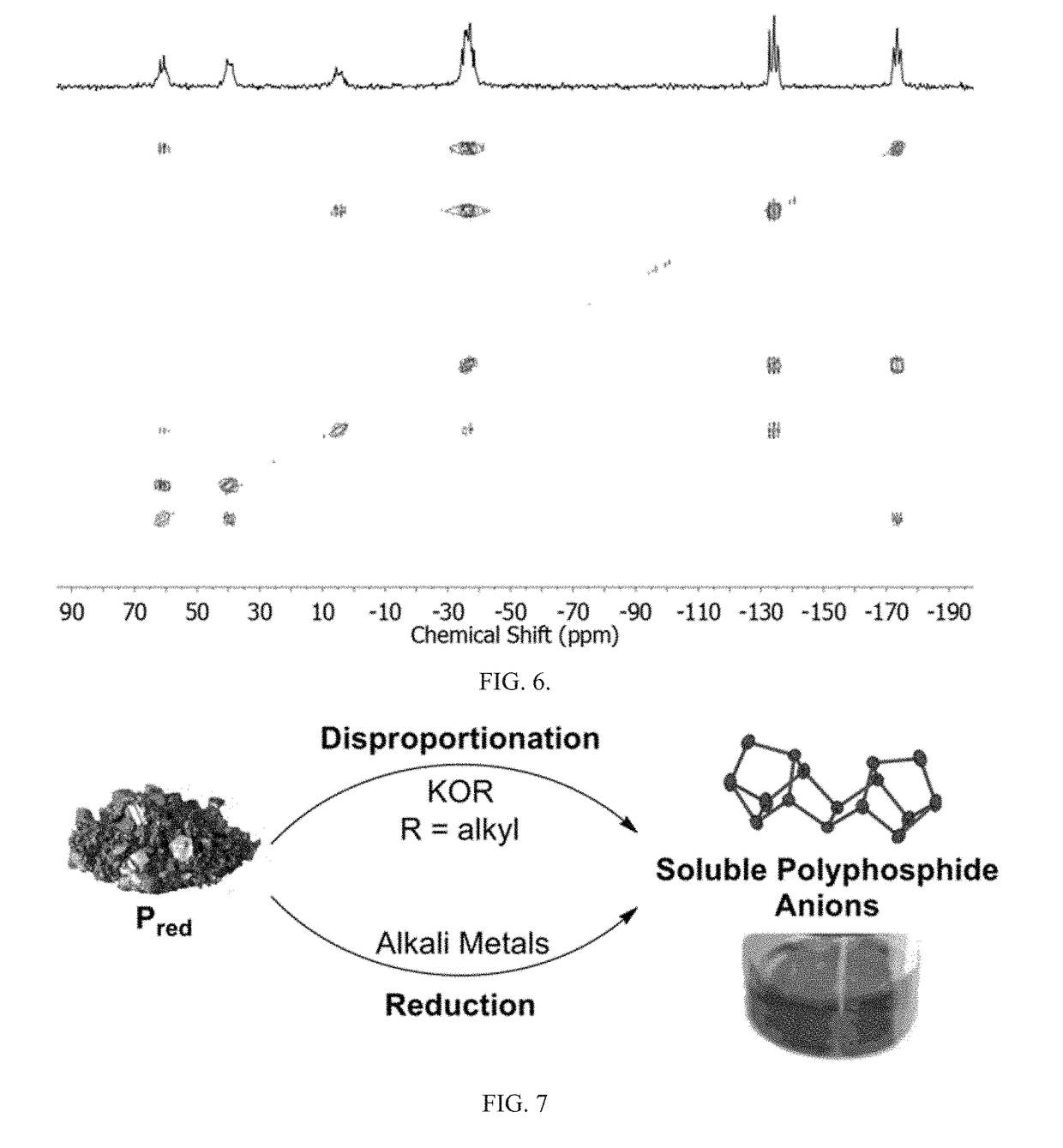Method of conversion of red phosphorous to soluble polyphosphides
a technology of red phosphorus and polyphosphides, applied in the field of chemical reactions, can solve the problems of limiting the potential use of polyphosphides, difficult scaling up, and the need for a broader exploration of solution-based routes
- Summary
- Abstract
- Description
- Claims
- Application Information
AI Technical Summary
Benefits of technology
Problems solved by technology
Method used
Image
Examples
example 1
[0042]All manipulations with air- and moisture-sensitive compounds were performed under an inert-gas atmosphere by using standard Schlenk techniques or an Ar-filled glovebox. Red phosphorus (99.999%, Alfa Aesar) and all anhydrous solvents (Sigma-Aldrich) were used as received. KOEt was freshly prepared from EtOH and K metal (99.5%, Sigma-Aldrich) and dried under vacuum overnight. Reaction mixtures were sampled for analysis by 31P NMR spectroscopy in air-free NMR tubes. Conversions were determined indirectly by isolation and weighing of unreacted Pred starting material. Elemental analyses (C, H, N, P) were performed by Midwest MicroLab, LLC.
[0043]Activation of Pred was undertaken using small pieces of K (30 mg, 0.8 mmol) and Pred (50 mg, 1.6 mmol), suspended in DME / THF (3 mL; 1:1 v / v), as seen in FIG. 1. The mixture was heated under reflux for 3 h. By reacting Pred with potassium metal in refluxing THF / DME (1:1 v / v; DME=1,2-dimethoxyethane), orange / red solutions were obtained that co...
example 2
[0054]All manipulations with air- and moisture-sensitive compounds were performed under an inert-gas atmosphere by using standard Schlenk techniques or an Ar-filled glovebox. Red phosphorus (99.999%, Alfa Aesar) and all anhydrous solvents (Sigma-Aldrich) were used as received. KOEt was freshly prepared from EtOH and K metal (99.5%, Sigma-Aldrich) and dried under vacuum overnight. Reaction mixtures were sampled for analysis by 31P NMR spectroscopy in air-free NMR tubes. Conversions were determined indirectly by isolation and weighing of unreacted Pred starting material. Elemental analyses (C, H, N, P) were performed by Midwest MicroLab, LLC.
[0055]Synthesis of (Bu4N)2P16: Solid KOEt (136 mg, 1.6 mmol) was dissolved in DME / THF (3 mL; 1:1 v / v) and Pred (50 mg, 1.6 mmol) was added to the solution. The suspension was heated to reflux for 2 h. The resulting bright-orange suspension was allowed to cool to RT and was then evaporated to dryness under vacuum. The dark-red residue was dissolved...
example 3
[0056]The use of shelf-stable Pred instead of highly reactive Pwhite allows was analyzed as a scalable, new reaction through flow-chemistry approaches. Based on work with solid reagents packed in flow reactors (Opalka, et al., Continuous proline catalysis via leaching of solid proline. Beilstein J. Org. Chem. 2011, 7: 1671-1679; Opalka, et al., Continuous synthesis and use of N-heterocyclic carbene copper(I) complexes from insoluble Cu2O. Org. Lett. 2013 Mar. 1, 15(5), 996-999; Longstreet, et al., Investigating the continuous synthesis of a nicotinonitrile precursor to nevirapine. Beilstein J Org Chem. 2013 Nov. 20; 9: 2570-2578; Alonso, et al., Continuous synthesis of organozinc halides coupled to Negishi reactions. Adv. Synth. Catal. 2014, 356(18), 3737-3741), rapid conversion of Pred to form soluble polyphosphides was tested achieved using a packed-bed method. To this end, Pred was loaded as a packed bed in a stainless steel column.
[0057]All manipulations with air- and moisture-s...
PUM
| Property | Measurement | Unit |
|---|---|---|
| grain size | aaaaa | aaaaa |
| temperature | aaaaa | aaaaa |
| length | aaaaa | aaaaa |
Abstract
Description
Claims
Application Information
 Login to View More
Login to View More - R&D
- Intellectual Property
- Life Sciences
- Materials
- Tech Scout
- Unparalleled Data Quality
- Higher Quality Content
- 60% Fewer Hallucinations
Browse by: Latest US Patents, China's latest patents, Technical Efficacy Thesaurus, Application Domain, Technology Topic, Popular Technical Reports.
© 2025 PatSnap. All rights reserved.Legal|Privacy policy|Modern Slavery Act Transparency Statement|Sitemap|About US| Contact US: help@patsnap.com



